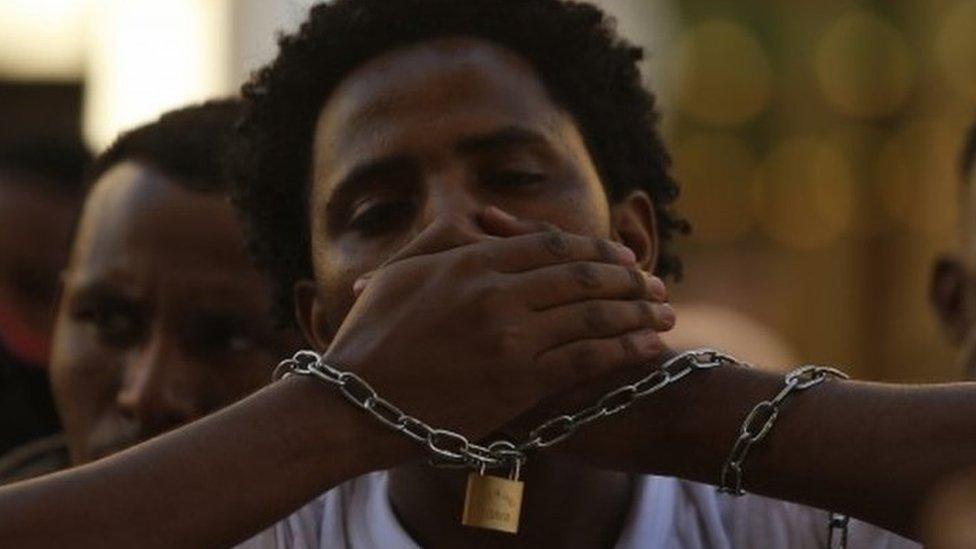Ethiopia mourns 55 killed during protest at Oromia festival
- Published
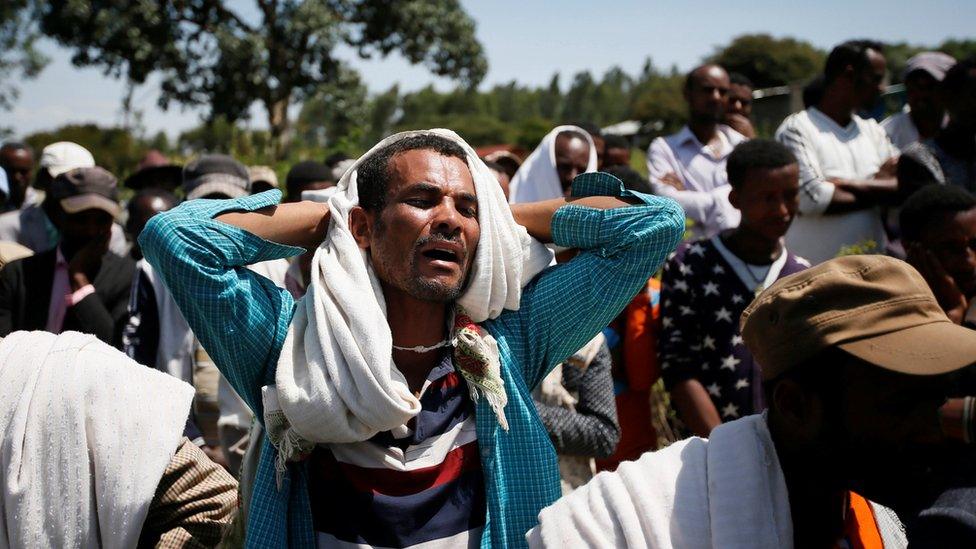
The government and protesters have given conflicting accounts of how the tragedy unfolded
Renewed protests have hit Ethiopia's Oromia region, a day after at least 55 people were killed in a stampede triggered by clashes between police and demonstrators at a religious festival.
Police fired tear gas to disperse protesters angered at their handling of Sunday's event, witnesses told the BBC.
Protesters say violence by the security forces led to the stampede, but the PM denied security forces had opened fire.
The government has declared three days of national mourning.
A doctor at a local hospital which received many of the dead told AFP news agency that he had seen no evidence of bullet wounds on the bodies.
At the funeral of one of the victims in the town of Dankaka earlier, Tadese Biru, speaking to Reuters news agency, described his anger at his son's death.
"The government is playing God's role... Could this have happened if there were a so-called democratic system in place?
"I saw bodies of people being loaded into trucks to be transported to the regions, just like aid wheat and maize. These are humans!"
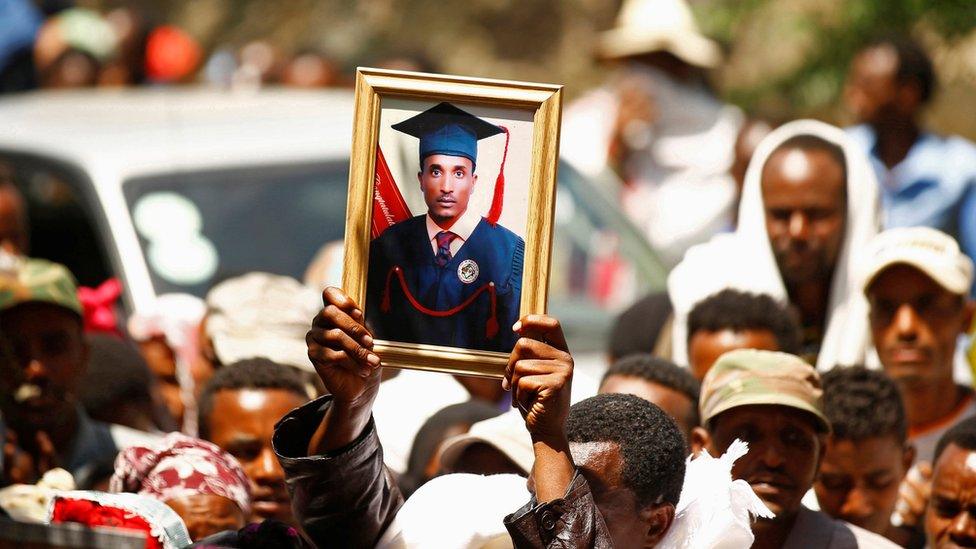
Tesfu Tadese Biru's father blames the government for his death
The town of Bishoftu, where the stampede took place, saw further unrest on Monday morning, according to an Ethiopian government official, quoted by the Associated Press news agency.
Crowds took to the streets in Ambo, Guder, Bule Hora and other towns in the Oromia region in response to the deaths, witnesses told Reuters.
In Ambo, 120km (75 miles) west of the capital, Addis Ababa, a local student said that everything was closed and gunshots could be heard, Reuters adds.
Online, some Ethiopians have replaced their Facebook profile pictures with a black square, in solidarity with the victims.
Footage from Sunday shows a huge protest and a panicked stampede
In a national address on state TV, Prime Minister Hailemariam Desalegn praised the security forces' "great efforts" to protect the public and blamed "evil forces" for the deaths on Sunday, vowing to bring to justice those responsible.
Thousands had gathered for the religious festival in Bishoftu, 40km (25 miles) from Addis Ababa.
The annual Irecha celebration is an important festival at which the Oromo people welcome spring.
But the crowds were chanting, "We need freedom" and "We need justice", witnesses said.
'Fell from a cliff'
Police say they fired tear gas after anti-government protesters threw stones and bottles, but others said demonstrators were entirely peaceful.
The national flag is flying at half-mast at all government buildings while regular programmes on state radio have been replaced with music, AFP reports.
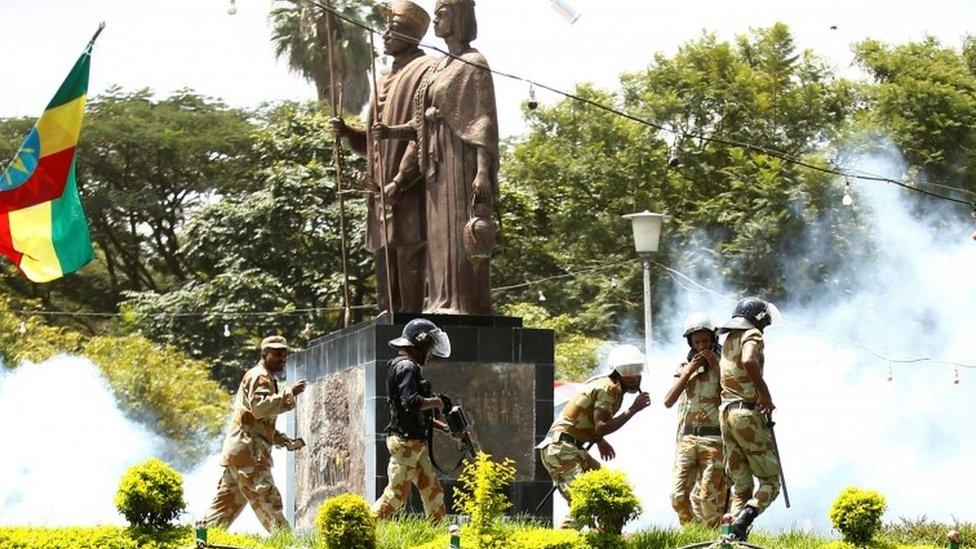
Security forces said they were responding to protesters throwing bottles and stones
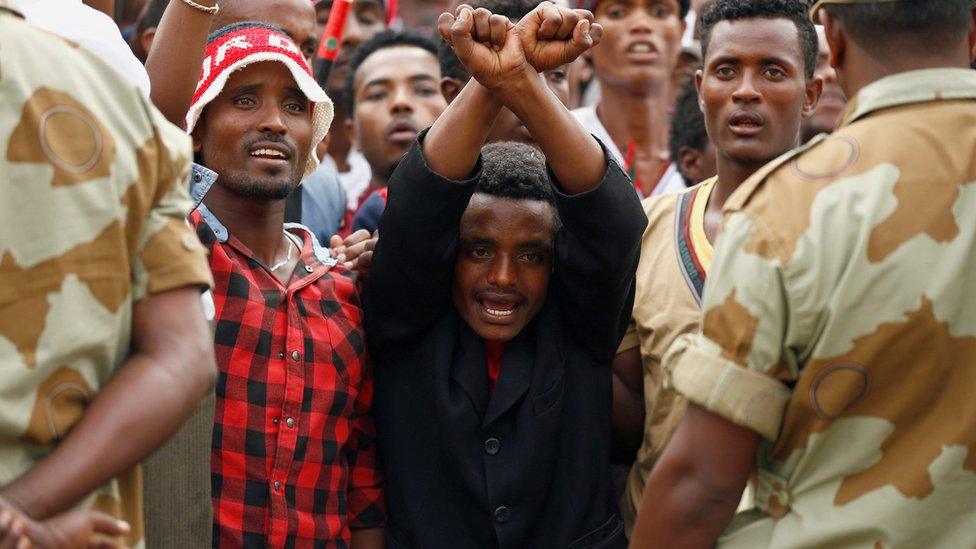
But many said the demonstrators were protesting peacefully about political and economic marginalisation
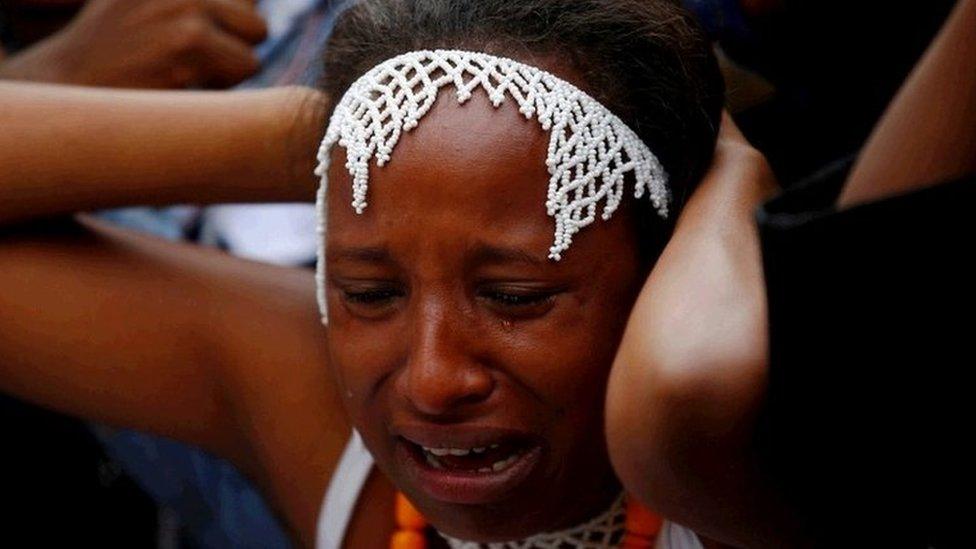
The current unrest is the biggest to hit Ethiopia in more than two decades
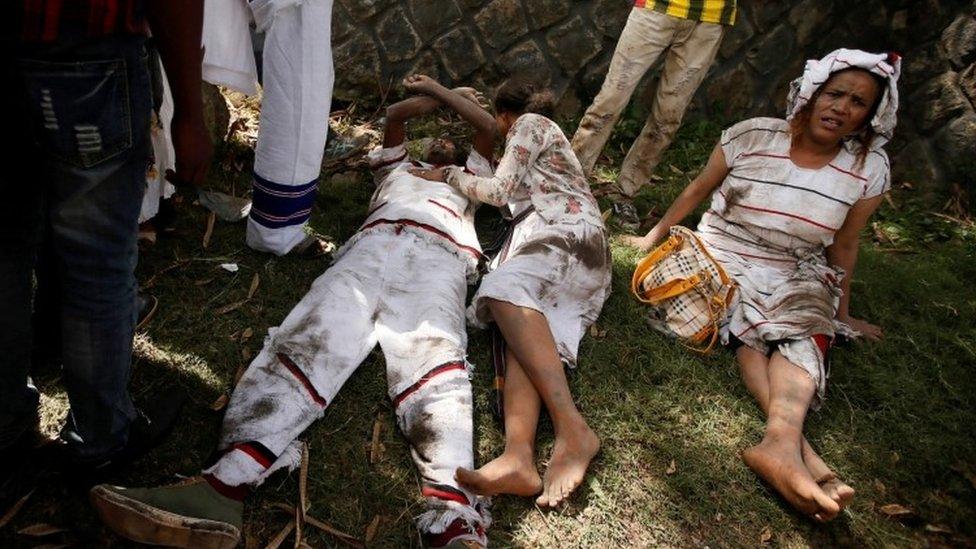
The US had already expressed concern about excessive use of force against protesters before Sunday's violence
Witnesses said the stampede started after police fired tear gas.
One protester told Associated Press he almost died after falling into a deep ditch as he was trying to flee. He was pulled out but the first people who fell into it had suffocated, he said.
An Oromo activist, Jawar Mohamed, was quoted as saying that nearly 300 people had been killed and many more injured.
He said troops and a helicopter gunship had opened fire, driving people off a cliff and into a lake.
The government-affiliated Fana Broadcasting Corporate (FBC) reported, external that people died falling from the cliff around the lake but it made no mention of a helicopter opening fire.
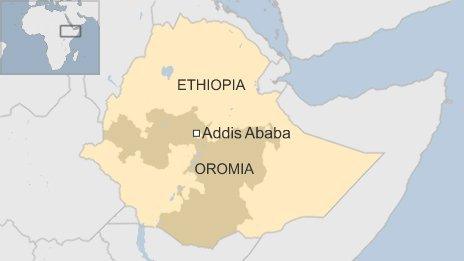
There has been a series of deadly clashes in Ethiopia in recent months.
People in Oromia and Amhara, two of Ethiopia's most populous regions, have complained about political and economic marginalisation.
The US has expressed concern about what it termed the excessive use of force against protesters.
The unrest was sparked last November by a plan to expand the capital into Oromia. This led to fears that farmers from the Oromo ethnic group, the largest in Ethiopia, would be displaced.
The plan was later dropped but protests continued, highlighting issues such as marginalisation and human rights.
- Published16 June 2016
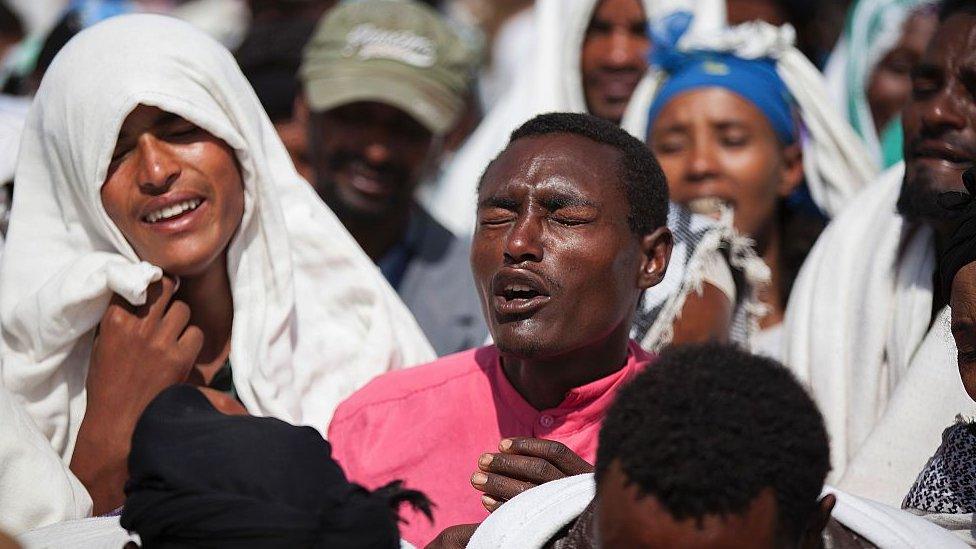
- Published22 August 2016
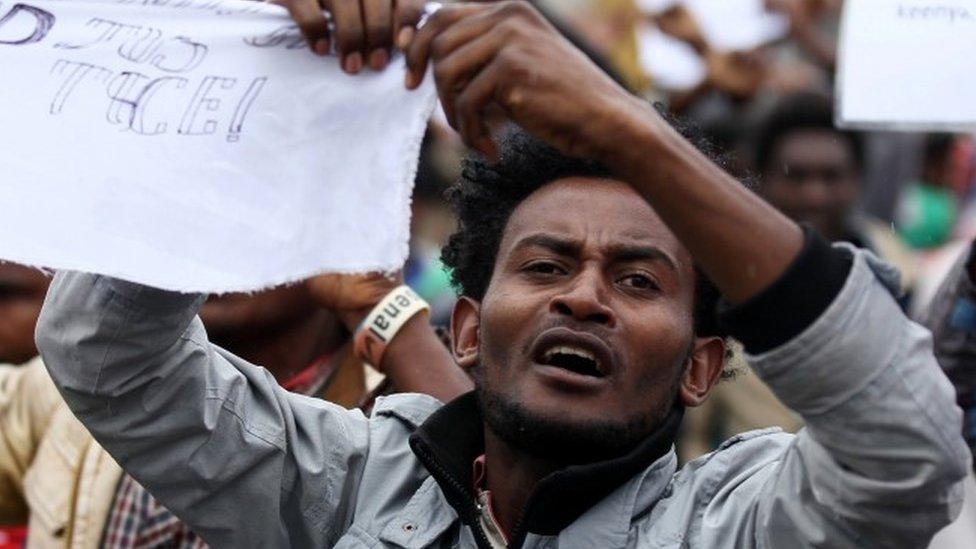
- Published9 March 2016
